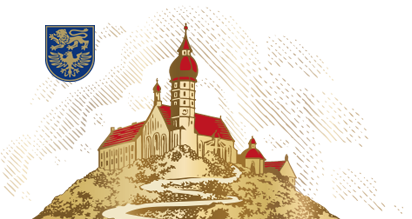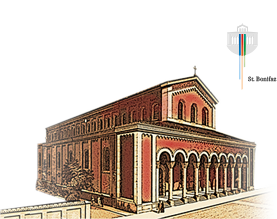Liturgy of the Hours
For the monks, seeking God is the most urgent task. Shared prayer, singing the psalms and hymns and reading the Holy Scripture are expressions of this search.
Worship, the “opus dei”, is not just the service of people to God through adoration and glorification, but also God’s work on the people.
Even the first Christians gathered for prayer to praise and glorify God. They invoked the words of Jesus to rejoice always and pray without ceasing (Lk 18, 1). The apostles called on early Christians to “pray without ceasing” (1 Thess 5, 16). “Unceasing prayer” was continued by the early monks in the deserts of Egypt, Syria and Palestine.
“Nothing shall take precedence over the service”
In the course of the first century, this unceasing prayer of the communities became the shared prayer of the monks in the cycle of church services and daily work. The praise of the psalms assumes a special place in the monks’ prayer. Certainly Jesus as a devout Jew knew the psalms and prayed regularly.
In the shared choral prayer, the monks commemorate the life, death and resurrection of Jesus. Jesus Christ is the centre of their entire life and serves as orientation for the daily routine. The monks of Saint Boniface and Andechs gather for the choral prayer four times a day:
Vigil and lauds are the morning praise of the monks. They mark the end of night and the beginning of day. Vigil means night watch. In it the monk expects the rise of day and hopes for the return of Christ. Lauds, the morning praise, centres on the resurrection of Jesus from the dead.
The sext commemorates Jesus Christ’s life and death as well as the workings of the Holy Spirit in the community. This hour invites the monks to pause in their day-to-day routine and find their way back to the centre of life.
In the vespers at the end of the day, the monks remember Jesus as the divine, everlasting light. They entrust themselves in prayer to the resurrected Christ who carries on even in times of darkness and death.
The monastic community’s day ends with the compline. This is when they look back on their day, search their conscience and confess all they have experienced to God in prayer. In singing the psalms and hymns and hearing the word of God, they entrust themselves to God’s protection.




